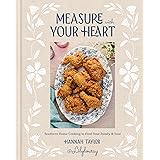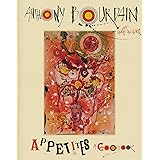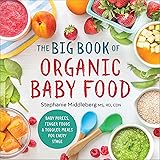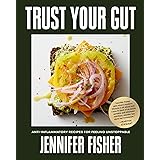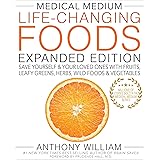Have you ever considered the true extent of your compassion, or pondered if there might be a significant area where it is unintentionally overlooked? The video above, featuring Donny Makower’s insightful TEDxUVA talk on “The Blindspot of Compassion – A Case for Vegan Living,” challenges us to look deeper into our ethical considerations regarding animals. It compellingly suggests that a widespread societal blind spot of compassion exists, particularly concerning our dietary choices and the animals categorized as “livestock.” This article aims to expand upon these profound ideas, offering a more detailed exploration of why embracing vegan living is not only ethically sound but also beneficial for personal health and global sustainability.
Understanding the Blind Spot: Proximity and Perception
The human mind often finds it easier to distance itself from uncomfortable truths. This phenomenon is expertly illustrated in the video through two contrasting burger restaurant scenarios. In one, a live cow is present, requiring a direct decision to end her life for a meal; in the other, the cow is miles away in a slaughterhouse, out of sight. The stark difference in consumer inclination to order a beef burger under these conditions highlights a crucial aspect of our collective blind spot of compassion.
Psychological research suggests that proximity to the consequences of our actions significantly influences our moral decision-making. When the suffering of an animal is physically removed from our immediate environment, it is easier for a disconnect to occur. This enables a continuation of behaviors that, under different circumstances, might be deemed unacceptable. Therefore, a deeper understanding of this psychological distancing is key to addressing the ethical implications of animal agriculture.
Defining Compassion and Challenging Its Arbitrary Boundaries
Compassion, at its core, is defined as showing sympathy or concern for the suffering of others. While most individuals readily extend this sentiment to fellow humans, friends, and even strangers, its application to the animal kingdom often proves selective. The video highlights how society arbitrarily categorizes animals into three groups: pets, wildlife, and livestock. Pets, such as dogs and cats, are loved as family; wildlife, like elephants and dolphins, are revered and protected. However, the third category—livestock, poultry, and seafood—are animals we routinely consume, wear, or derive products from.
Yet, a critical point emphasized in the video is that, in all the ways that truly matter, animals across these categories are fundamentally similar. They are sentient beings, capable of perceiving and feeling. They experience emotions and, crucially, do not wish to suffer or die. This inherent desire for life and freedom from pain is evident in their behavior, often tragically observed in the terror of animals forced into slaughterhouses. Recognizing this shared sentience is paramount to overcoming our selective compassion.
The Undeniable Sentience of Farmed Animals
The notion that animals bred for food are somehow less deserving of compassion than pets is a fallacy challenged by scientific evidence. Studies have shown pigs, for instance, to be highly intelligent creatures, often surpassing dogs in cognitive abilities and, in some respects, displaying problem-solving skills comparable to a three-year-old child. These animals, when given the opportunity, are playful, social, and capable of forming complex relationships.
Imagine meeting a pig at an animal sanctuary – the thought of inflicting pain upon such a creature would be abhorrent to most. However, the systemic cruelty inherent in factory farming, and even in many “humane” operations, results in conditions that deprive these intelligent beings of their natural instincts and desires. Their lives are frequently characterized by confinement, distress, and a premature end, a stark contrast to the respect often afforded to companion animals. This discrepancy in treatment, depending solely on a societal label, underscores the profound nature of our blind spot of compassion.
Debunking the Myth of Necessity: Health Benefits of a Plant-Based Diet
One of the most persistent arguments for consuming animal products revolves around the idea of necessity—that meat, dairy, and eggs are essential for survival or optimal health. However, this belief is increasingly countered by a wealth of scientific and medical research. The Academy of Nutrition and Dietetics, the world’s largest organization of food and nutrition professionals, has unequivocally stated that well-planned vegetarian and vegan diets are healthful and appropriate for all stages of life, including pregnancy, lactation, infancy, childhood, adolescence, and for athletes. This position is further confirmed by organizations like the British Dietetic Association.
Beyond adequacy, a whole-food, plant-based diet has been scientifically demonstrated to offer significant preventative and even reversal capabilities for many leading causes of death. Chronic diseases such as certain types of cancer, type 2 diabetes, and heart disease are often exacerbated by the consumption of animal products. Conversely, diets rich in fruits, vegetables, legumes, and whole grains have been shown to reduce inflammation, improve cardiovascular health, and support overall longevity. The idea that animal products are irreplaceable sources of protein is also a myth; a diverse range of plant foods—including beans, lentils, nuts, seeds, and leafy greens—provides all essential amino acids in abundance, a fact powerfully illustrated by the thriving vegan athletes in sports ranging from bodybuilding to powerlifting.
The Reality of “Humane” Practices and Factory Farming
For many, the appeal of “humanely raised,” “cage-free,” or “organic” animal products offers a way to reconcile their desire for animal products with their compassion. Yet, the video points out that the vast majority of animal products consumed come from industrial factory farms, where conditions are far from idyllic. Moreover, even on the so-called “happy farms,” practices that would shock most consumers are often commonplace.
Consider the dairy industry: cows are routinely artificially impregnated each year. Within 24 to 48 hours of birth, their calves are forcibly separated from them, leading to immense distress for both mother and offspring. This separation allows human consumption of milk biologically intended for a baby calf, an animal that grows to weigh well over a thousand pounds. Once a mother cow’s milk production declines after a few short years, she is deemed “spent” and sent to slaughter. Male calves, unable to produce milk, face a bleak future—either killed shortly after birth, raised for veal, or integrated into the beef industry for slaughter. In the egg industry, male chicks, which do not lay eggs, are considered waste products and are killed by the millions on their first day of life, often through methods such as live grinding or gassing. These practices, regardless of how they are labeled, represent a profound ethical dilemma and underscore the pervasive nature of our blind spot of compassion.
Addressing Common Justifications for Animal Consumption
Various justifications are often presented for continuing to eat animals, and the video addresses several key arguments:
- Taste Pleasure: The enjoyment derived from eating animal products is often cited as a primary reason. However, a critical question is posed: is the transient taste pleasure worth more than the life and suffering of a sentient animal? For many, the answer becomes clear when confronted with the reality of animal agriculture.
- “It’s Natural”: The argument that eating animals is natural, akin to lions eating gazelles, is often presented. Yet, as humans, we possess moral agency and the ability to choose. Unlike obligate carnivores, we are not compelled to kill for survival, especially when abundant plant-based alternatives are available. Our societal norms and ethical frameworks often guide us away from behaviors observed in the wild if they are deemed morally wrong.
- Cost: Some believe a plant-based diet is inherently more expensive. While specialty vegan products can be pricey, staple plant-based foods such as beans, lentils, rice, potatoes, fruits, and vegetables are often among the most economical dietary choices. Numerous resources exist to illustrate how to maintain a healthy vegan living lifestyle on a modest budget, making it accessible to virtually everyone.
Your Choices Make a Profound Difference: Environmental and Ethical Imperatives
The notion that one person’s choices cannot make a difference is often a barrier to change. However, as the video powerfully explains, every purchase is a vote. When you choose plant-based products, you are voting for a more compassionate, sustainable, and healthier food system. The marketplace responds to demand; the proliferation of plant-based milks, burgers, and other alternatives today, compared to just a few decades ago, is a testament to the power of individual consumer choices.
Furthermore, the environmental impact of animal agriculture is a critical consideration for our planet. It stands as a leading contributor to greenhouse gas emissions, deforestation, ocean dead zones, species extinction, excessive land and water use, and water pollution. When considering all its ripple effects, few other human activities have such far-reaching detrimental consequences. Estimates suggest that over 70 billion land animals and trillions of marine animals are intentionally killed each year to fuel human consumption. Therefore, shifting towards vegan living is not merely an ethical choice for animals, but a vital step towards addressing some of our most pressing global environmental and health crises.
Embracing Vegan Living: A Simple Starting Point
For those ready to move beyond the blind spot of compassion, the transition to vegan living can seem daunting. However, it does not have to be a radical overhaul of your entire diet overnight. A highly effective starting point, as suggested in the video, is to simply continue eating the foods you already enjoy, but opt for their plant-based versions. Whether it’s milk for your coffee, yogurt for breakfast, a burger for lunch, or butter on your bread, delicious and accessible plant-based alternatives exist for almost every animal product imaginable. Giving these options a try is often the easiest first step, demonstrating that a compassionate and sustainable lifestyle is within reach for everyone. Animals are on this planet with us, not for us; acknowledging this truth transforms our choices.


